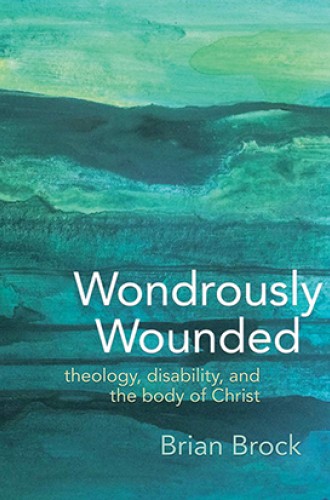Seeing disability through a lens of wonder
Brian Brock’s book is both academic and deeply personal.
As congregations across the theological spectrum struggle to include individuals with disabilities in their communal life, many scholars are calling for a revision of the view that individuals with disabilities live tragic or painful lives. Drawing upon biblical studies, ethnography, or systematic theology, most of these authors propose new ways of understanding inclusion, highlighting the uncommon and unexpected ways God’s grace works. Brian Brock’s complex interdisciplinary volume joins that chorus of voices. His erudite theological analysis is grounded in the practical realm by his reflections on life with his son Adam, who has both Down syndrome and autism.
Brock begins by recounting how the early church understood the births of “anomalous individuals” not as tragedies but as signs from God, who bestows them with a unique vocation of calling forth Christian wonder. For Brock, the advancement of prenatal genetic testing that informs parents of genetic abnormalities prior to birth has resulted in a loss of that wonder. Medicine’s place in a liberal society, Brock believes, subjects parents to both overt and subtle pressures to end such pregnancies. The assumption is that individuals with genetic abnormalities will be a burden and will be unlikely to live happy, independent lives.
Brock writes both academically and from experience. He recalls how he and his wife chose to resist for a time the doctors’ desire to test Adam for Down syndrome shortly after his birth. Against the technologically driven understanding of human life that would consider such a diagnosis a tragedy, Brock calls for a return to wonder that sees all births as God given. This wonder depends on openness to God’s working in unexpected ways.





